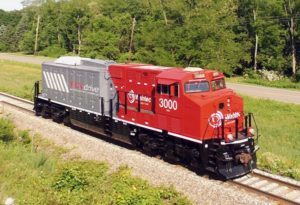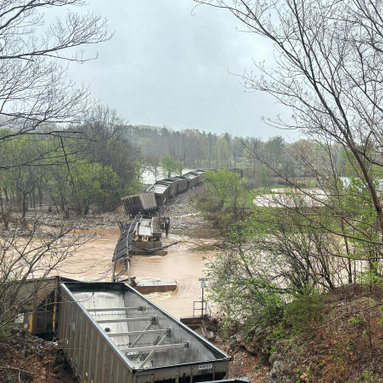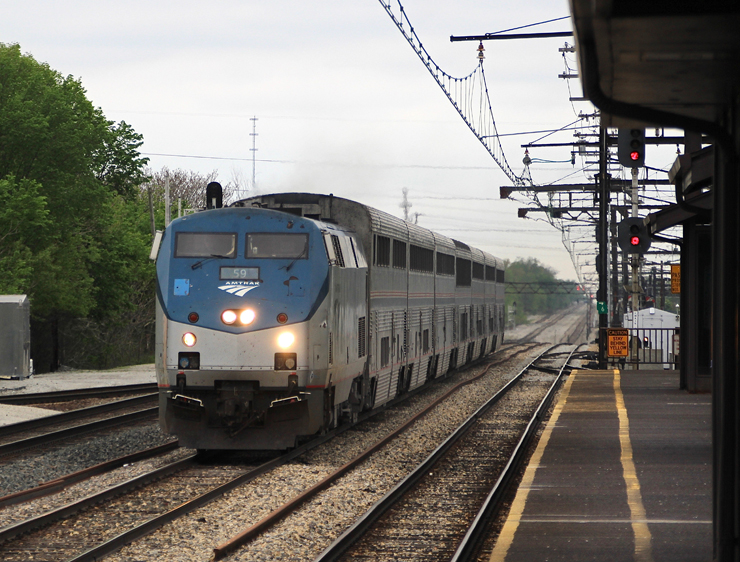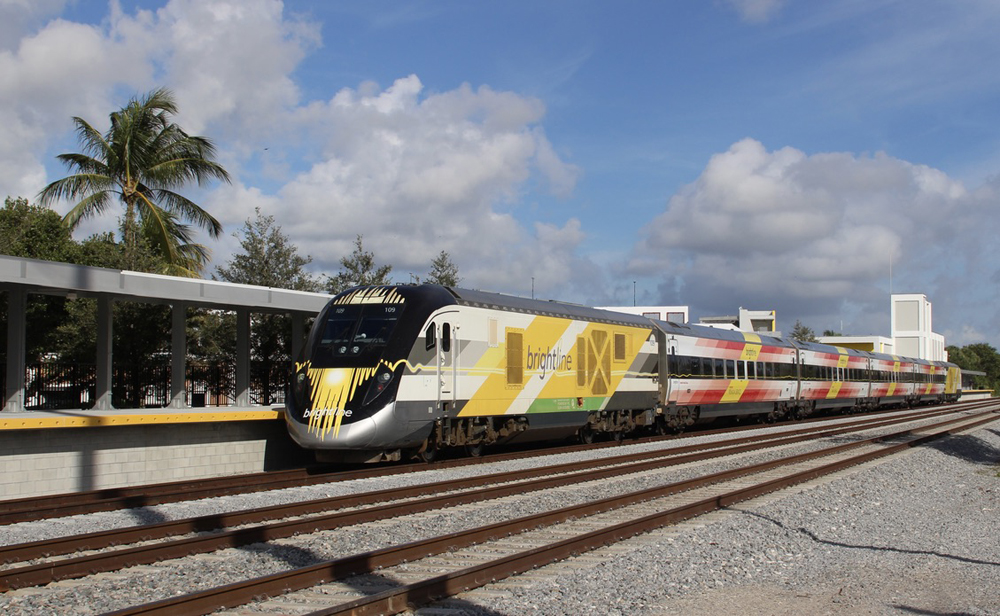FORT WORTH, Texas — BNSF Railway has begun testing Wabtec’s battery electric FLXdrive locomotive in revenue service between Barstow and Stockton, Calif.

The red and gray FLXdrive locomotive, Wabtec 3000, is spliced between a pair of conventional Wabtec Tier 4 locomotives for pilot runs that will extend through March.
The first train out of Barstow consisted of 76 cars, with 55 loads and 21 empties, totalling 8,385 tons, BNSF says. The return trip consisted of 118 cars, with 40 loads and 78 empties, totalling 7,787 tons.
BNSF says the experimental locomotive is one potential solution to reducing its carbon footprint.
“We’ve got everything in place and we’re ready to see how this next-generation locomotive performs in revenue service,” said John Lovenburg, BNSF vice president, environmental. “BNSF is focused on continuing to reduce our environmental impact, and we’re committed to doing our part to test and assess the commercial viability of emerging technologies that reduce emissions.”
The battery-powered locomotive creates a three-unit hybrid consist that is expected to improve fuel efficiency of the diesel electric locomotives by at least 10%. When running on the mainline, both the battery-electric and diesel locomotives power the train. For more details, see Wabtec’s battery-electric locomotive video.
“The FLXdrive is the world’s first 100% heavy-haul battery-electric locomotive that optimizes the total energy utilization of the entire locomotive consist,” said Alan Hamilton, Wabtec vice president, engineering. “This technology works in a manner very similar to how electric vehicles use regenerative braking. It’s a significant step forward for the rail industry and will change the course for even cleaner, more energy-efficient transport.”
If the initial pilot proves successful, BNSF aims to test the locomotive in other locations and operating conditions on its system. For now the locomotive will be tested in merchandise service between Stockton and Barstow, BNSF spokeswoman Amy Casas says.
The battery-electric locomotive pilot program is part of a $22.6 million grant awarded to BNSF and the San Joaquin Valley Air Pollution Control District from the Zero- and Near Zero-Emission Freight Facilities project by the California Air Resource Board.
BNSF says the FLXdrive tests are one part of its investments in sustainable technologies, including idle control, electric wide-span cranes at intermodal terminals, battery-electric hostlers, automated gates at its intermodal facilities, and Tier 4 locomotives.
BNSF partnered with Wabtec on the development of the FLXdrive.













